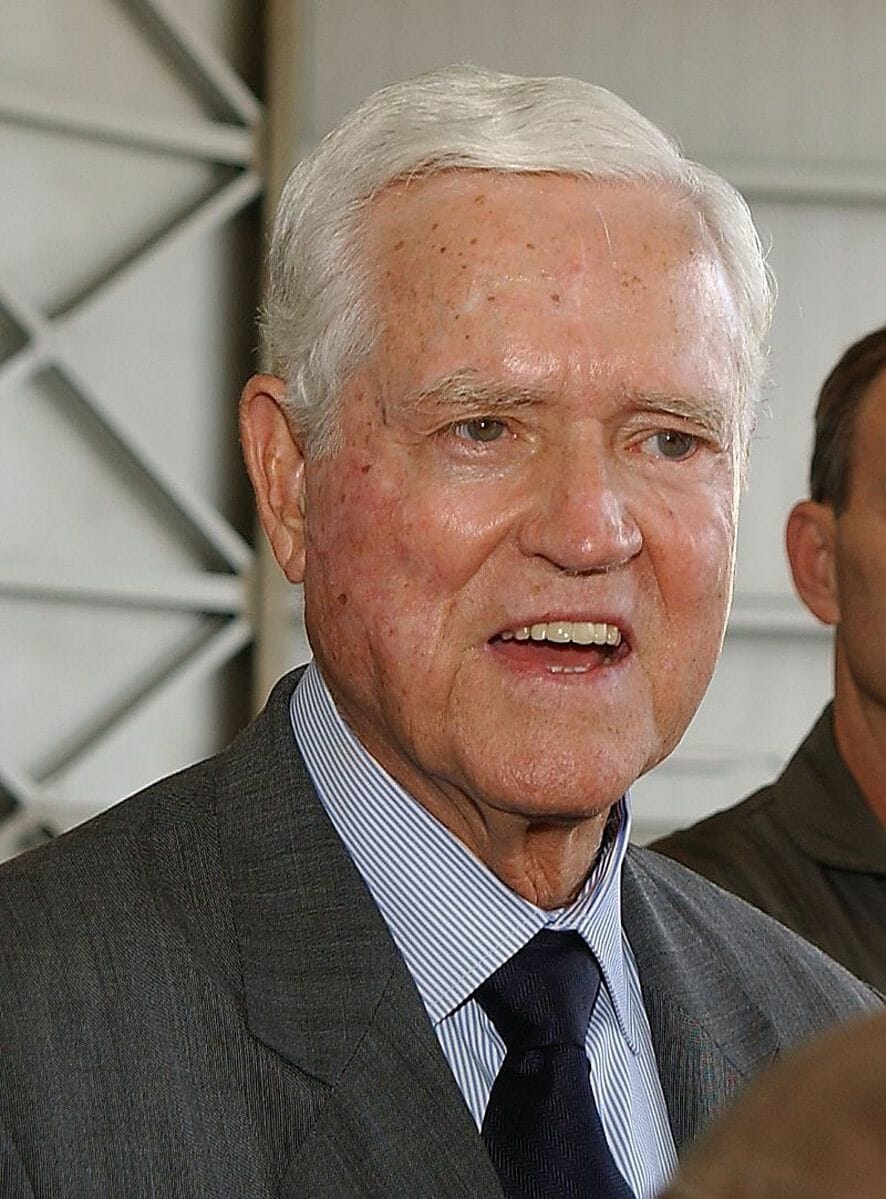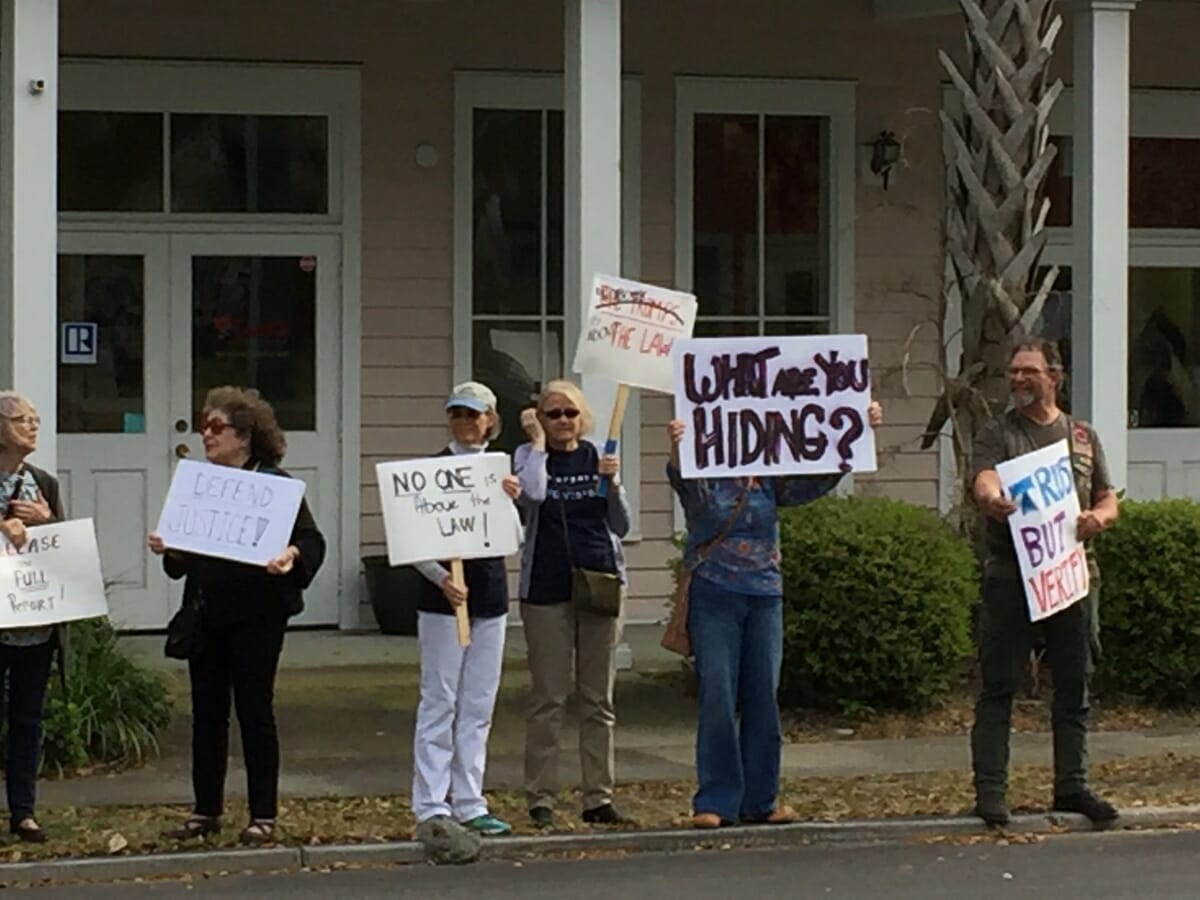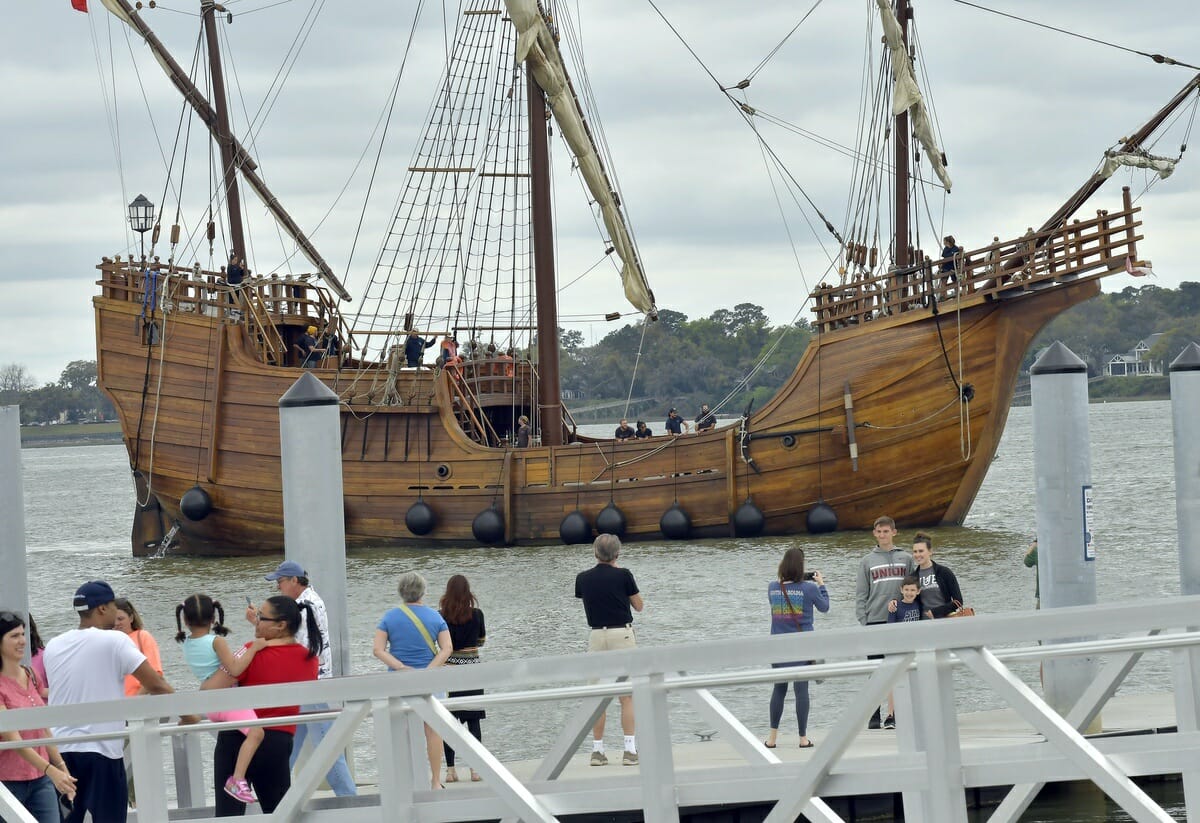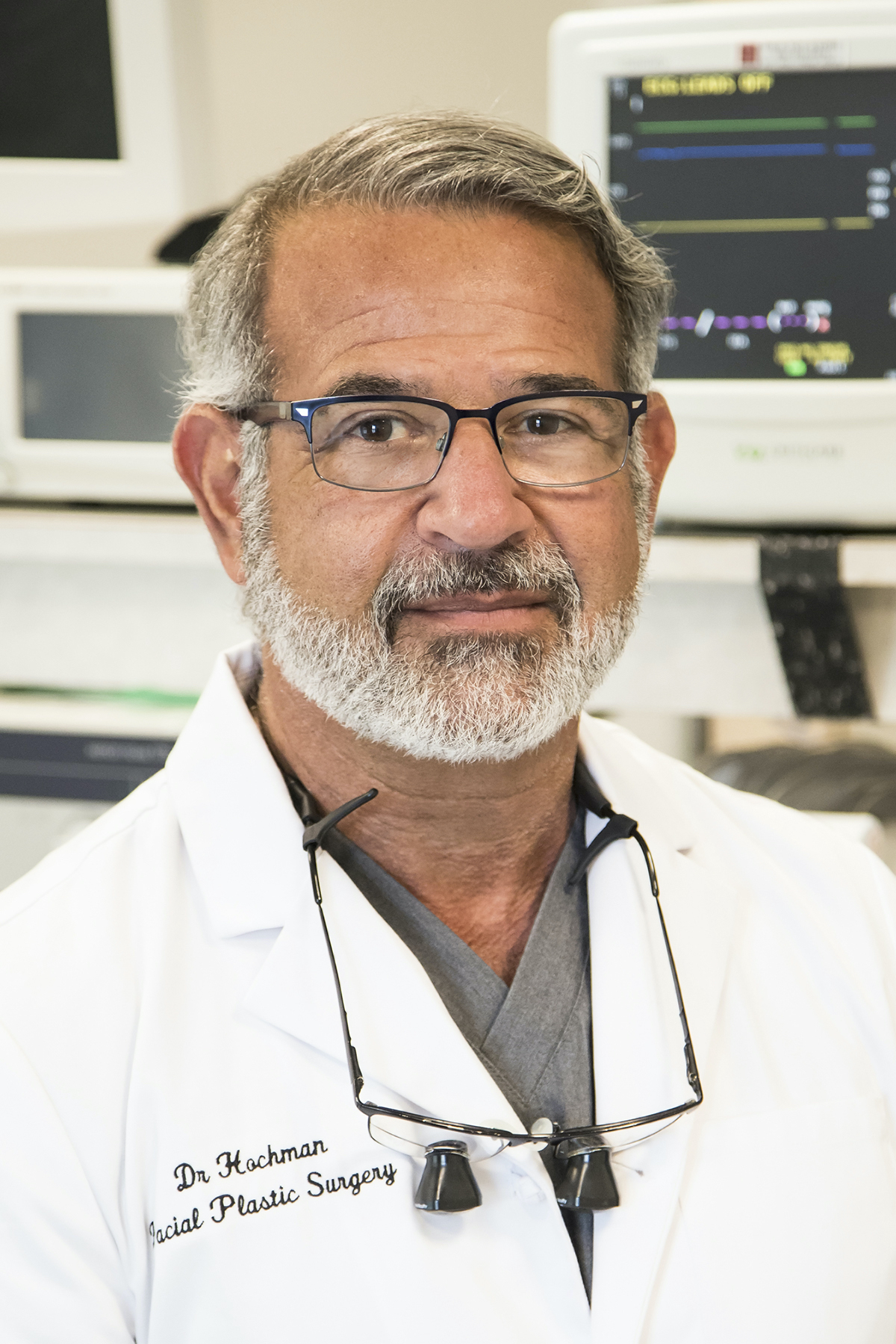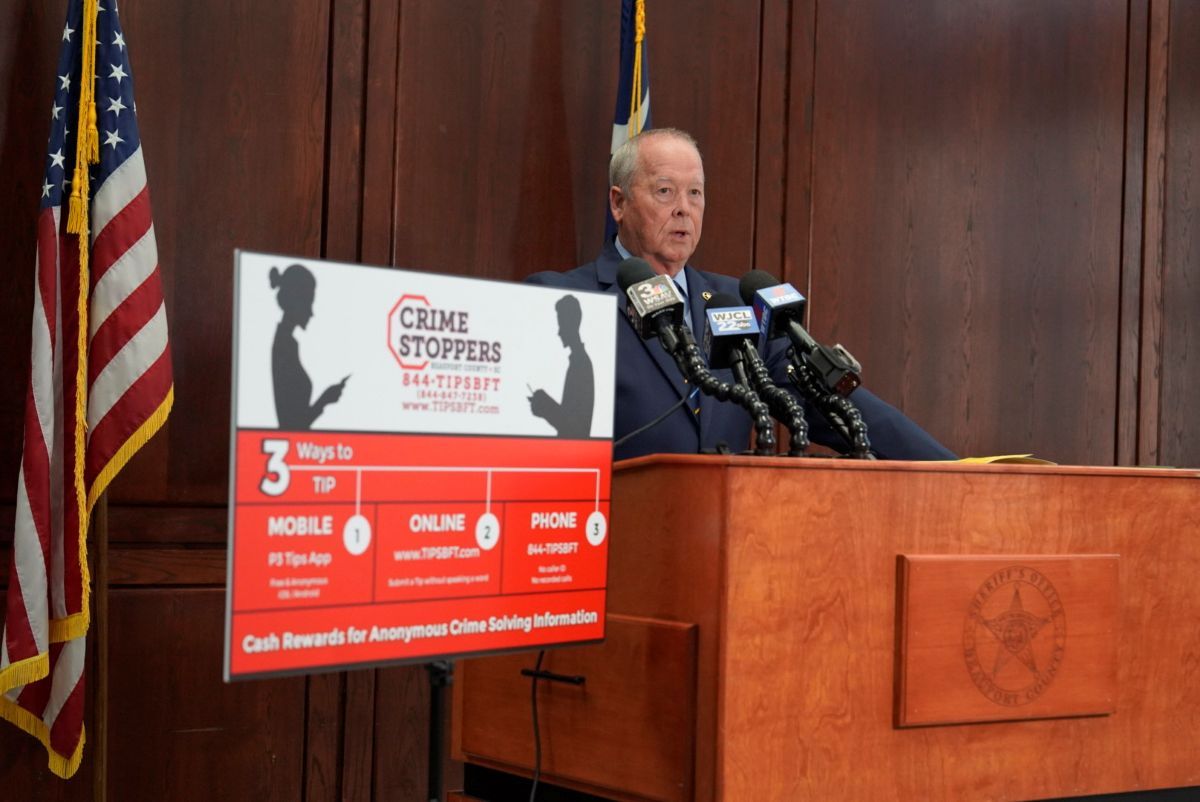By Mike McCombs
When former U.S. senator and South Carolina governor Ernest “Fritz” Hollings died at the age of 97 on Saturday, April 6, people around the state remembered the giant of Palmetto State politics and his achievements.
But for one Beaufort politician, Hollings’ influence was much more personal.
From the summer of 1970 through 1984, Beaufort mayor Billy Keyserling said Hollings was his “home base.”

Keyserling started off as a summer intern, and Hollings immediately took a liking to him.
“He probably thought I was a little different because I’d been to school in the north and I was a little different than everyone around him,” Keyserling said. “He liked diversity.”
Over the next 14 years, Keyserling wore many hats for Hollings.
“College intern, legislative assistant, committee staff, special projects assistant in Washington and S.C., one-time sailing instructor, campaign manager and friend,” Keyserling said in a release. “Over a period of 14 years, my life was all about Fritz Hollings. My reward was a mentor for life.”
Keyserling’s first summer with Hollings was a big summer in relation to the Vietnam war. His first job was to read all Hollings’ Vietnam mail and tell the Senator what it said at the end of the day.
Eventually, Keyserling found himself as Hollings’ campaign manager early in the 1984 presidential race.
“I was the reason he lost and he was the reason I didn’t run a winning campaign,” Keyserling joked. “Neither of us were prepared for that kind of campaign.”
Keyserling said Hollings was a lot more strategic and thoughtful and intellectual than most people thought he was. He was extremely pragmatic.
“He really looked like such a senator. The way he dressed, the way he carried himself,” Keyserling said. “The way he talked with the thick Charleston accent, if you could understand him, a lot of people never knew how deep he was. He was a deep thinker.”
Hollings became frustrated late in his career in the U.S. Senate as the “gentleman’s club” began to crumble, Keyserling said.
There was a loss of civility, bipartisanship, even listening. The quality of the conversation had dwindled.
Keyserling said he suggested Hollings entertain the notion of a seat on the Supreme Court, a position he had once discussed with President Richard Nixon.
Hollings did not think he would reach the court. But really, he preferred the Senate, anyway.
“He liked the adversarial proceedings. He liked to take ideas and wrestle them and debate them and argue them and try to win people to his side,” Keyserling said. “(There was) no higher level of adversarial relationship (than the Senate) and no higher honor than to have the people of S.C. as his clients.”
Keyserling said the one thing he took the most from his relationship with Hollings was to have integrity and honesty with yourself.
“You fight for what’s right,” Keyserling said. “Whether you think you can win or lose, you fight the best fight. He took on many fights where he stood no chance to win.”
After his career was over, Hollings showed some of that integrity when he did something quite uncommon in Washington, D.C.
While most politicians relish the opportunity to have a building named after them, he was fighting to have his name taken off of one.
“It was the single most important event to me and the most proud that I ever was that I worked for him,” Keyserling said.
The new courthouse in Charleston was named for Hollings as he helped get the money appropriated to build it.
In 2015, Hollings called Senator Lindsay Graham and S.C. Congressman James Clyburn and asked them to do him a favor – help him get the building renamed for J. Waties Waring, the judge who orchestrated the Brown v. Board of Education Supreme Court ruling that desegregated public schools.
“I paid for it but Judge Waring earned it,” Hollings said. “His name ought to be on the building, not mine.”
According to Keyserling, Graham actually thought Hollings was drunk. Nonetheless, Hollings got what he wanted.
“That probably was one of the most telling moments about the integrity he had,” Keyserling said. “He gave up a trophy to someone that he really believed deserved that trophy more than he did.”
As Hollings removed himself from public life, Keyserling wrote him a letter around Thanksgiving of 2018 to thank him for all he had done for him.
This is how Keyserling closed the letter:
“My mantra in public service has been to speak from the heart, tell the truth and own mistakes. And I attribute my many successes and my strong moral compass to lessons learned from you.
Your legacy will always be part of me and the decisions I make as a public servant and afterward. And I know this to be the case for many of the Hollings Alumni from your years of service.
I want to thank you for your friendship and support over the almost half century.
With the utmost respect, appreciation and love for Fritz Hollings, the man and his legacy, I am
Sincerely.
Billy K”
Above: Former U.S. senator and South Carolina governor Ernest “Fritz” Hollings

